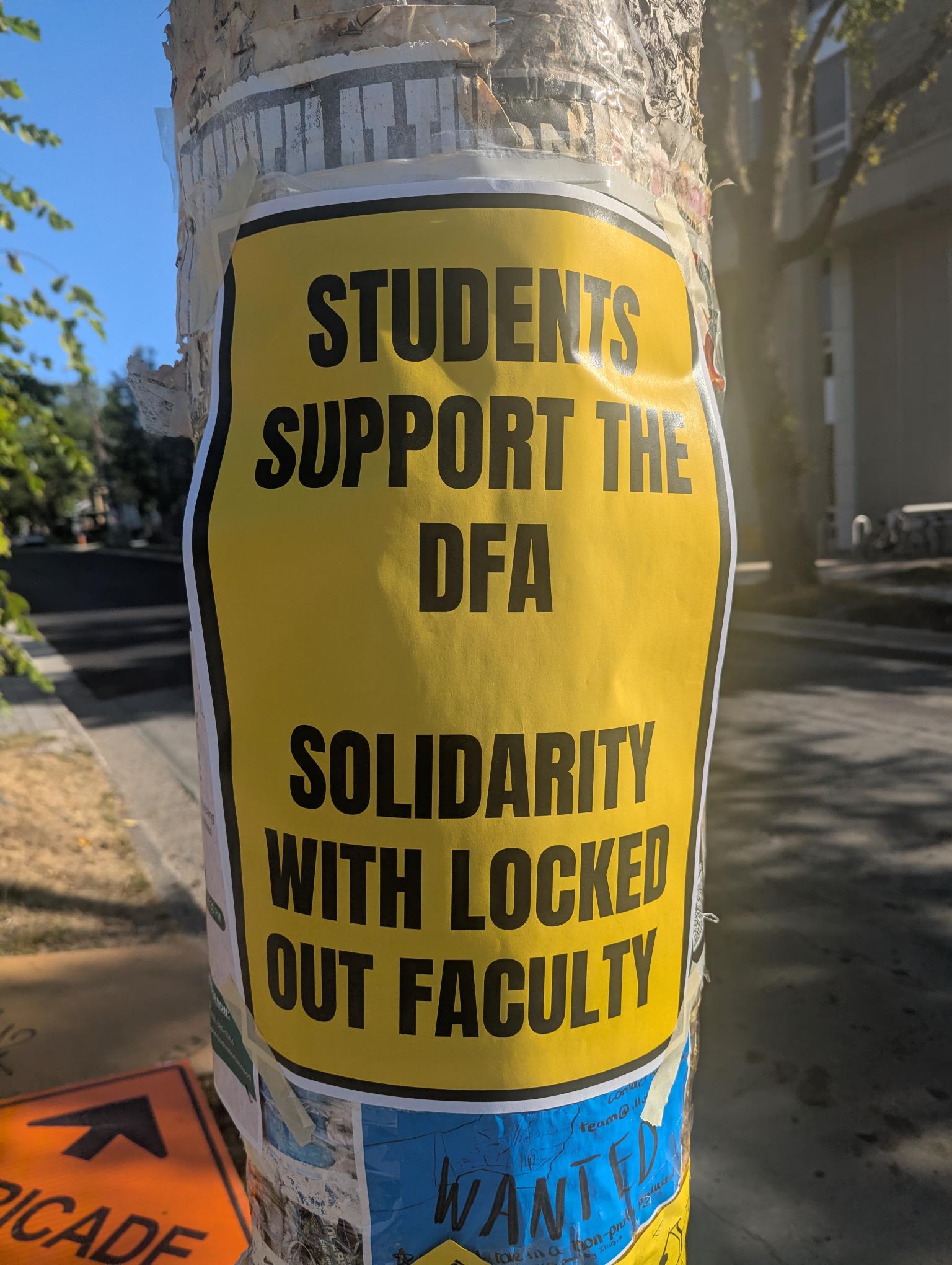Locked Out Together: The Importance of Solidarity Between Dalhousie Students and Faculty

On August 20, 2025, President Brooks and her senior administration made the unprecedented decision to lock out almost 1,000 members of the Dalhousie Faculty Association (DFA). Unlike a strike, in which the choice to stop work is made collectively and democratically, a lockout is initiated by the administration. During a lockout, members of the DFA are prevented from completing their academic duties. The result was classes cancelled, thesis defences postponed, and tens of thousands of students left without mentorship or answers. Rather than bargaining in good faith or allowing a legal strike, the administration shut down its own classrooms.
The Dalhousie Student Union(DSU) council, which represents more than 20,000 undergraduate and graduate students, recognized the importance of the work we do as faculty members, librarians, and counsellors by voting to affirm its support for locked-out DFA members. The DSU has declared unequivocally that “the strength of the university community depends on the well-being of both students and faculty.” This public display of solidarity reflects a growing recognition that students and faculty are not on opposite sides of this dispute, but rather, they are both being failed by Dalhousie’s leadership.
While tuition continues to be collected, with many students paying over $10,000 per term, the university has suspended the very services those fees were supposed to guarantee. Although this situation affects all of us, international students endure further anxiety from adjusting to a new country, paying significantly higher tuition fees, and now face unnecessary academic and visa uncertainty. Students are paying for an education they cannot access, while faculty are barred from providing it. Whatever the administration’s rationale, the lockout cannot be defended against the reality of declining enrolments, rising tuition, and the reputational damage of alienating both students and faculty.
Both students and faculty want education, in which teaching and mentorship are valued, to be a priority for the institution. The DSU rightly acknowledges that faculty working conditions are student learning conditions, which in practice means:
- Smaller class sizes and individualized feedback
- Accessible office hours and thesis supervision
- Research opportunities and academic mentorship
- Stability and continuity in academic programs
When professors are respected and resourced to teach, mentor, and research, students thrive. When faculty are silenced or sidelined for the sake of bottom lines, education suffers, and students are left behind.
Students have refused to be silent. Many have joined faculty on the picket lines, emailed the administration, and organized their own solidarity efforts. As one Dalhousie student put it, “I just want to learn,” a plea that reflects the exasperation of many who suddenly find themselves without classes, guidance, or certainty. Another echoed this sense of disillusionment: “We’ve paid tuition. We’ve arranged our lives around our classes—and now, nothing.” These voices underscore how the lockout has left students paying for an education they cannot access, with their academic plans and personal lives thrown into limbo (CBC News, qtd. in Yahoo News).
The university administration continues to frame the lockout as regrettable but necessary. Unfortunately, instead of sharing real dialogue with the DFA, the administration has chosen silence to its members and public relations messaging, including bargaining in public, to pressure us into submission. This choice undermines trust and weakens their credibility. However, the path forward requires that collective bargaining is respected with due process, and the DFA has repeatedly stated its commitment to returning to the table. As Nova Scotia’s largest post-secondary institution, students, families, and taxpayers should expect that Dalhousie’s administrative team lead with integrity by ending the lockout and returning to the bargaining table.
Even as bargaining resumes, the lesson of this lockout is clear: students and faculty are strongest when we stand together. The show of solidarity across picket lines and classrooms has made it impossible to ignore that our futures are intertwined. We were locked out together, and together we must continue working for a university that values learning, mentorship, and the public good.